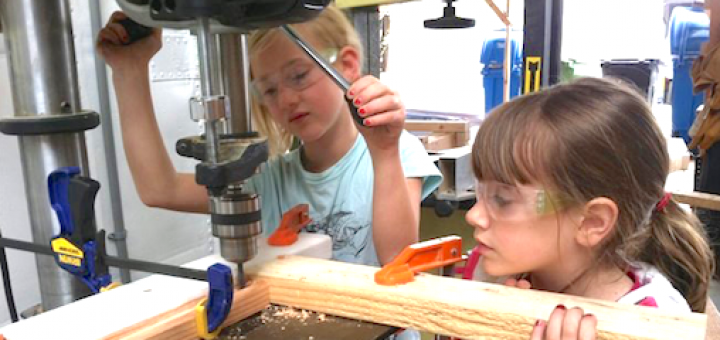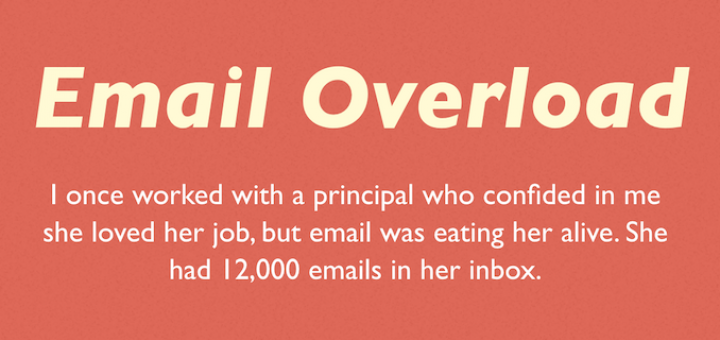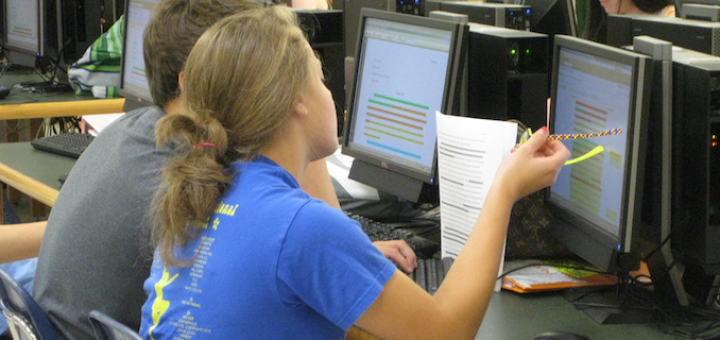Teaching and learning in grades 4-8
Cheryl Mizerny is excited about the maker movement and all that it implies for education, but she hopes educators will take school-based makerspaces in the direction of incorporating 21st century learning goals, avoiding rote projects, and promoting innovation.
“We hate email,” says productivity expert and former principal Frank Buck, “because every time we check it, someone is adding to our already-crowded schedule.” In the 5th post in his Productivity Suite series, Buck shows educators how to keep your inbox empty.
Near the end of Sarah Cooper’s unit on the film Glory, she wondered what her 8th grade history students found most interesting. Read about the “silent conversation” she facilitated to help them replicate the authentic adult experience of “browsing history.”
Douglas Fisher, Nancy Frey and Diane Lapp want teachers to use the ideas and advice in Text Complexity “to support every student in becoming more skilled at reading complex texts.” Anne Anderson reports their book will “stretch” both teachers and students!
Building on their 2001 edition of Dealing with Difficult Parents, Todd Whitaker and Douglas J. Fiore offer a valuable resource for professional development, says reviewer Holly Foley, especially when addressing difficult relationships between home and school.
Increased funding for STEM programs in the new ESSA has heightened interest among proponents of other curriculum areas in getting a piece of the STEM money pie. Anne Jolly warns that diverting funds away from real STEM initiatives could be bad for the nation.
The general educator’s perspective is critical as special educators strive to strike a balance and co-teach effectively. Elizabeth Stein queried two co-teaching general ed teachers and asked them to choose a color that represented their co-teaching experience.
Despite her strong commitment to 21st century collaborative learning, Amber Chandler admits she’d “always held back from allowing my students to work together on their writing.” Would everyone be engaged? Could it be graded? Then her kids showed her the way.
Can supportive feedback from a diverse internet audience help students grasp the benefits of a growth mindset? History teacher Tim Kramer believes the answer is yes, after weighing his 6th graders’ work during a project-driven, tech-infused Ancient Egypt unit.
Wherever you are in your school’s leadership journey, Five Critical Leadership Practices can be the map to help you become a leader for student success. Assistant Principal Mike Janatovich appreciates the authors’ ability to weave the practices into an interconnected whole.







































